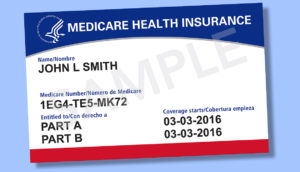Dear Liz: Should we take out a home equity loan so we can do some improvements on our house and make it work better for us, or should we sell it and upgrade to a bigger house? We are not in a rush to move, so we are content to take our time to find the right new home at the right price. We are also considering staying and doing work on our current home. But we have a lot of equity and are wondering: Would it be smarter to cash that in? We both remember the housing crash and are very nervous about getting in over our heads.
Answer: People are spending a lot of time at home these days, and many are longing for a little extra space. Interest rates are low, which makes borrowing for improvements or a bigger home more affordable for many.
You’re smart to be cautious about taking on too much debt, though. Lenders are much more cautious than they were before the Great Recession of 2007 to 2009, but it’s still possible to borrow more than you can comfortably repay. Big mortgage payments could prevent you from saving for important goals such as retirement or your children’s college education.
If you like your current neighborhood, remodeling is often the more economical route. You spend roughly 10% of your home’s value when you sell it and buy another. Real estate commissions take a big chunk, as do moving costs. Bigger houses — whether through remodeling or moving — also can mean higher tax, insurance and utility bills. That’s not to say you should never upgrade, but you’re smart to consider all your options because the cost of exchanging homes is pretty high.
By the way, you aren’t really cashing in equity when you use it to buy another home or borrow against it to make improvements. Some people would say that’s “putting your equity to work,” but the idea that equity needs employment is what led many people to borrow excessively against their homes before the last recession. It’s perfectly fine, and often desirable, to have lots of equity just sitting around. That way, it’s there for you when you really need it. You can tap it in an emergency, for example, or to help fund your retirement.
 Today’s top story: How frugal fashionistas can stay on trend. Also in the news: What Biden or Trump could do for your student loans, why you need an investment policy statement, why you need an investment policy statement, and college student argue distance learning should cost less.
Today’s top story: How frugal fashionistas can stay on trend. Also in the news: What Biden or Trump could do for your student loans, why you need an investment policy statement, why you need an investment policy statement, and college student argue distance learning should cost less. Today’s top story: Are Medicare Advantage plans worth the risk? Also in the news: 4 ways women can invest in other women, 4 market headwinds facing first-time buyers, and 9 million Americans will get letters about missing stimulus checks.
Today’s top story: Are Medicare Advantage plans worth the risk? Also in the news: 4 ways women can invest in other women, 4 market headwinds facing first-time buyers, and 9 million Americans will get letters about missing stimulus checks. Today’s top story: Your credit history opens doors – here’s how to build it. Also in the news: what happens to your debt if your school closes for good, and exit strategies for young adults forced home during COVID-19.
Today’s top story: Your credit history opens doors – here’s how to build it. Also in the news: what happens to your debt if your school closes for good, and exit strategies for young adults forced home during COVID-19.  Today’s top story: For lower-credit homeowners, refinancing is harder, but not hopeless. Also in the news: 4 home insurance pitfalls to avoid during hurricane season, survey finds majority of parents want personal finance taught in high schools, and how to decide between a 15-year and 30-year mortgage.
Today’s top story: For lower-credit homeowners, refinancing is harder, but not hopeless. Also in the news: 4 home insurance pitfalls to avoid during hurricane season, survey finds majority of parents want personal finance taught in high schools, and how to decide between a 15-year and 30-year mortgage. Today’s top story: Should I pay for my hotel using cash, points or both? Also in the news: A new episode of the SmartMoney podcast on fake reviews and saving too much, 5 travel writers draft their favorite airlines, and where to get relief if there isn’t a second stimulus check.
Today’s top story: Should I pay for my hotel using cash, points or both? Also in the news: A new episode of the SmartMoney podcast on fake reviews and saving too much, 5 travel writers draft their favorite airlines, and where to get relief if there isn’t a second stimulus check.